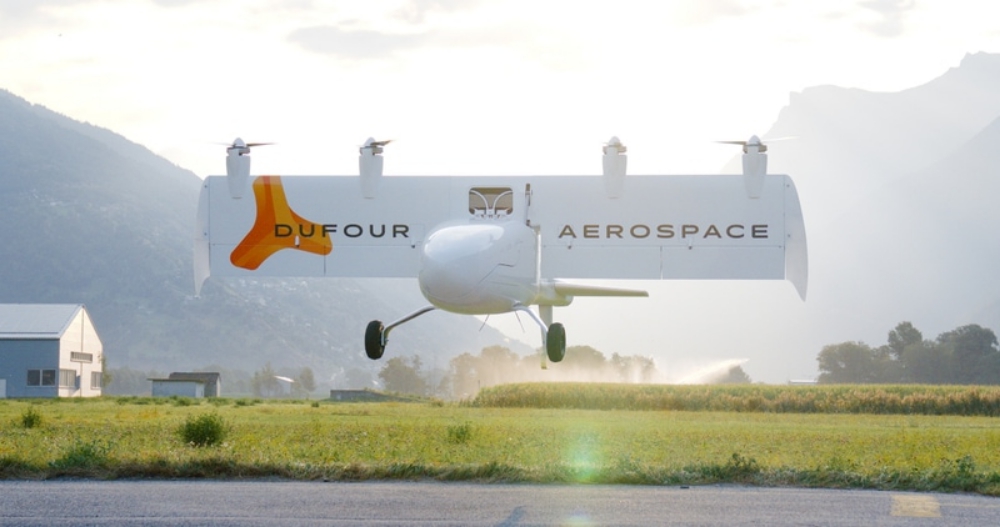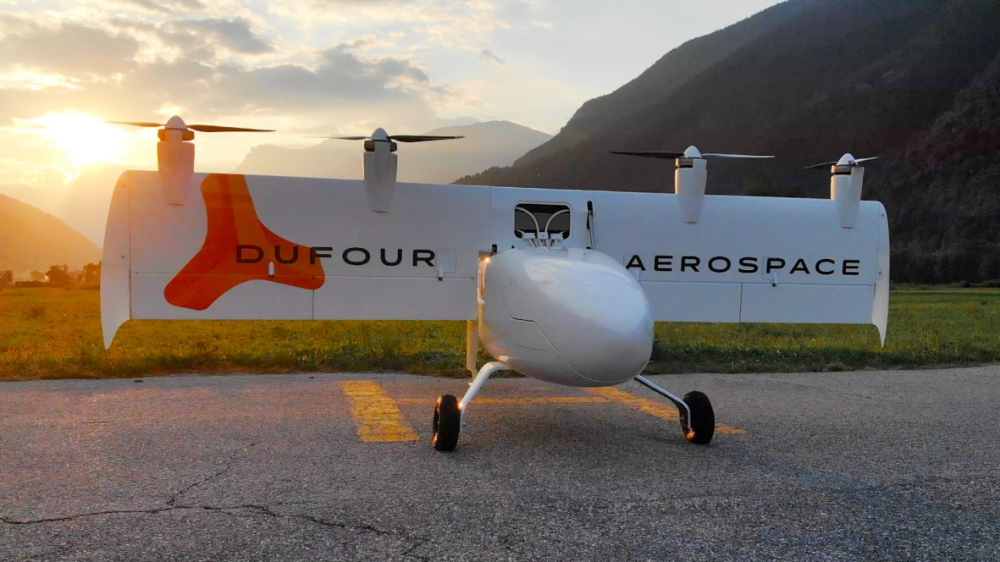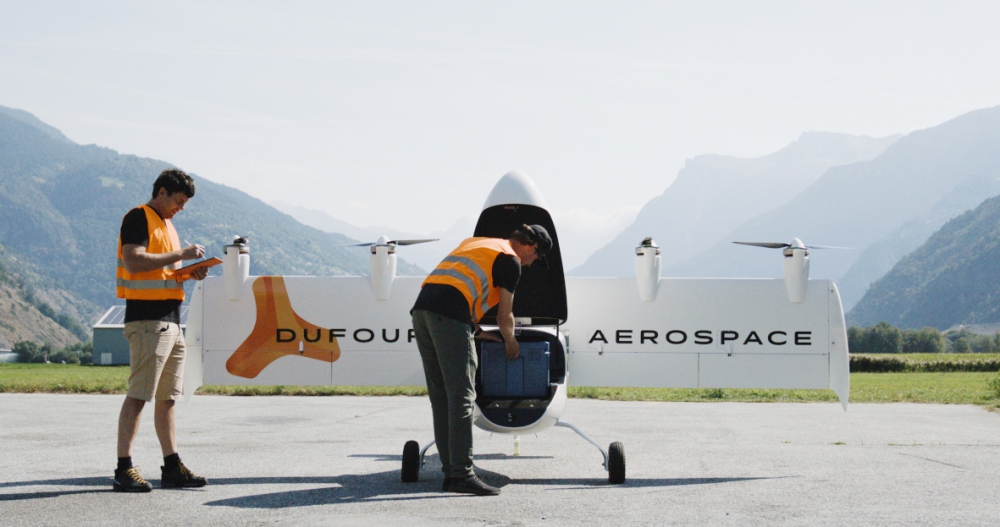Swiss-based eVTOL development and production company Dufour Aerospace launched the Aero2 as its first commercially available product in their tilt-wing eVTOL family. Aero2 is designed as amulti-purpose small unmanned aircraft with an unmatched operational flexibility and low operating cost.
With a payload of up to 40 kg (88 lbs), a maximum take-off weight of 150 kg (330 lbs) and a maximum flight time of three hours in standard configuration, it is suitable for a wide variety of customer applications.
“Aero2 is as versatile as a Swiss Army Knife,” said Thomas Pfammatter, Co-founder and CEO of Dufour Aerospace. “This innovative small unmanned aircraft will greatly support our customers in their activities. With its quickly exchangeable nose cone, it is the perfect tool to carry different customer payloads, be it in logistics, topographical surveys, mappings, measurements or for public safety applications.”
This first product of Dufour’s tilt-wing family will fly as fast as 170 km/h (92kts) in cruise speed. In VTOL-configuration, it takes-off and lands on the smallest landing spots, using as little space as a conventional unmanned aerial vehicle. During flight it uses as little energy as a conventional airplane. The tilt-wing design combines the best features of both helicopters and airplanes.
Dufour Aerospace first successfully flew a technology demonstrator in 2020, as seen on the company’s website.
“The platform showed the expected outstanding aerodynamic performance and versatility,” said Jasmine Kent, Co-founder and CTO. “We decided to continue the development towards an unmanned product. This is how Aero2 was born. Reactions from observers of the current prototype are encouraging. In a series of prototypes, we will continue to add and certify more features such as the hybrid propulsion module, de-icing capabilities and a usage and health monitoring system. Aero2 offers redundancy in many ways and will therefore meet strict safety requirements.”
Aero2 is designed to fully comply with EASA’s Special Condition for Light Unmanned Aerial Systems and is expected to enter serial production in 2023.
Source: Press Release



